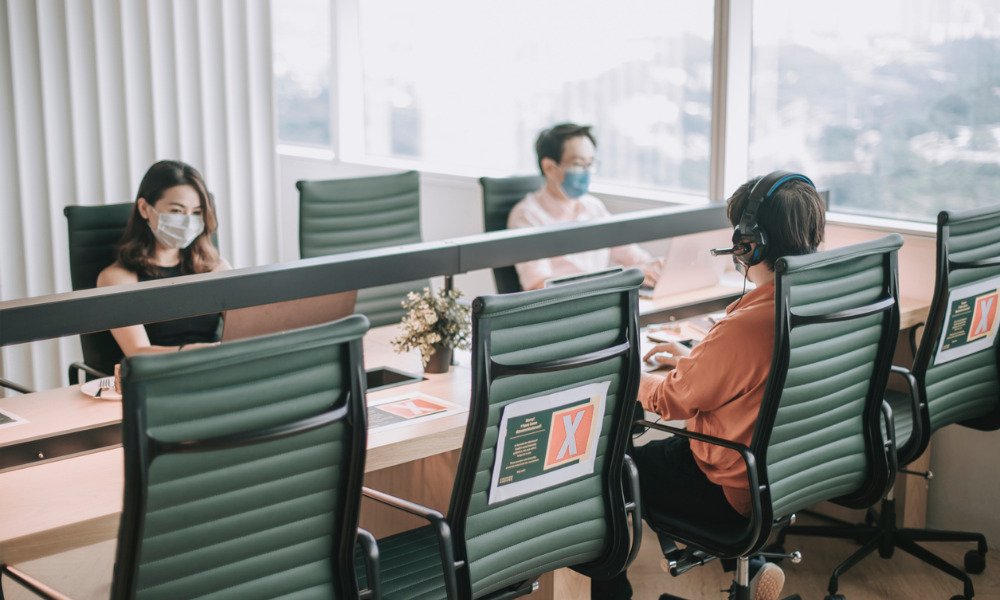
Should HR take charge of monitoring things like social distancing in the office?

Workers overwhelmingly (87%) believe that employers are responsible for enforcing COVID-19 related health and safety practices at work.
More than ever before, employees returning to the office will be prioritizing their health and wellness alongside work, according to a new study. They expect to be supported by their company and its leaders.
Almost three in four (74%) of employees also said that any non-compliant co-workers should be punished.
READ MORE: 1 in 4 employees 'afraid' of returning to work
Staff would only be willing or comfortable returning to the office when certain actions or practices are in place, found OC Tanner. Employees expect the following from employers:
Verbal (61%) or written warnings (59%) should be giving to co-workers who fail to abide by any health and safety practices, said staff.
Over one in three employees were even in favour of a job suspension (37%) or fines (34%). About a quarter of staffers would be satisfied with asking errant employees to return to remote working (24%).
Srirang Thirumalai Kumara, Group CHRO and Head - Infrastructure Management and Services Group at ICICI Bank made it clear that if you’re planning a return to the office, employee safety needs to be top priority amidst the COVID-19 crisis.
“The business continuity planning team’s focus was to establish a basic working model that would serve the customer and [pandemic] requirements at the point of time,” he said. “Safety certainly will be the first question that [leadership] asked every day in the morning.”
When figuring out whether staff need to return to work, always ask if they’re required to be in office to carry out their duties. If they are, Kumara said the bank’s leadership team would discuss about the sanitisation standard needed to keep workplaces clean and safe for employees.
“The first thing was to ensure was [safety],” he said. “Second, was to ensure that we had a business process running and functioning and ensuring that it was evolving to serve the public.